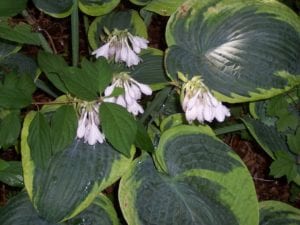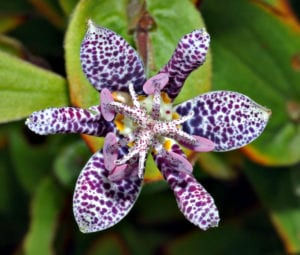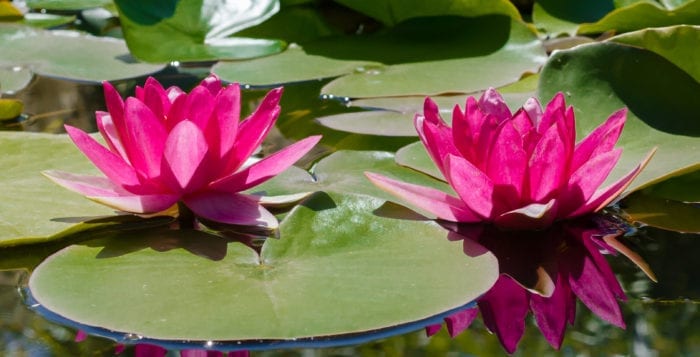Long Island Gardening: Growing ‘lilies’ in the garden
By Ellen Barcel
This is the first article in a three-part series.
There are many plants in the garden with the word “lily” in their name. But, all are not true lilies (genus Lilium). There’s calla lily, plantain lily and toad lily to name just a few as well as mountain lilies (Ixiolirion tatarcum).
But, why should the gardener be interested in what is a lily and what is not? Why do we care what botanists think? Well, for one thing, many plants that are not true lilies have different garden requirements.

Take, for example, the plantain lily — the hosta — which prefers shade or only filtered sun. Lily of the valley too prefers shade. That’s very different from the calla lily, which requires a fair amount of sun. In addition, calla lilies are generally hardy from zone 8 to 10 or 11. Long Island is zone 7; so calla lily bulbs need to be lifted and stored over winter in our area or treated as annuals. You don’t need to lift hostas or lilies of the valley each fall since they are herbaceous perennials and hardy on Long Island.
Then there’s the question of toxicity. Easter lilies are poisonous to cats, and lily of the valley and calla lilies are considered to be highly poisonous (to people as well as pets). On the other hand, the flowers of some daylilies (Hemerocallis) are edible and used in Asian cooking.
So, yes, save those tags, label your plants and follow the directions that came with your purchase for successful “lilies” in your garden.
Some lilies are not lilies at all
I. tatarcum is usually known as the blue mountain lily, Siberian lily or lavender mountain lily. This is a small plant (12 to 15 inches high), a native of Asia, that is hardy in zones 3 to 9. Once planted (usually in fall) it will come back year after year. Its flowers come in shades of blue and violet. Because of its size and hardiness, it makes an ideal plant in the rock garden.
The fragrant, long-lasting flowers make good cut flowers as well, blooming late spring to early summer. So, consider adding some to your cutting garden. One more plus – it’s deer resistant. You need to do very little to this plant to have it come back year after year. To help it multiply, scatter the ripe seeds in other areas of the garden.
Water lilies are not true lilies either but are in the family Nymphaeaceae. Water lilies have leaves (pads) and flowers that float on or show above the water but are rooted in the soil beneath. They are divided into three types: hardy, night blooming (tropical) and day blooming (tropical). To grow water lilies you need a freshwater pond or water feature. If you select hardy ones, then you don’t need to lift the rhizomes over winter.

The toad lily (genus Tricyrtis) includes a number of species including T. formosana, T. hira (hairy toad lily) and T. macrantha (yellow flowers). Toad lilies are shade-loving perennials, hardy generally from zones 4 to 8 and bloom with delicate purple, plum or lavender flowers that appear in late summer and fall. The plant is somewhat deer resistant and is propagated by division but can also be grown from seed. This is a small plant and works well in a shade garden or rock garden.
In addition to plantain lily, hostas (old name funkia) are sometimes referred to as August lily or Corfu lily. They were once classified in the family Liliaceae (due to the flowers resemblance to true lilies) but are now classified in the family Agavaceae, genus Hosta. Like the true lily, they are herbaceous perennials. They grow from underground corms or rhizomes, doing well in shade. While they are grown primarily for their leaves, they do have flowers, which are usually white or pale purple, sometimes fragrant.
Next week we’ll take a look at true lilies.
Ellen Barcel is a freelance writer and master gardener. To reach Cornell Cooperative Extension and its Master Gardener program, call 631-727-7850.







